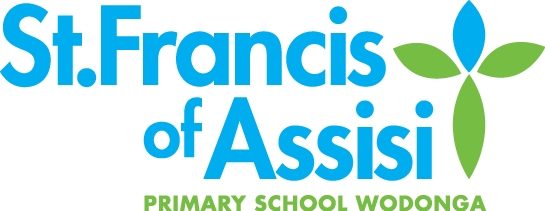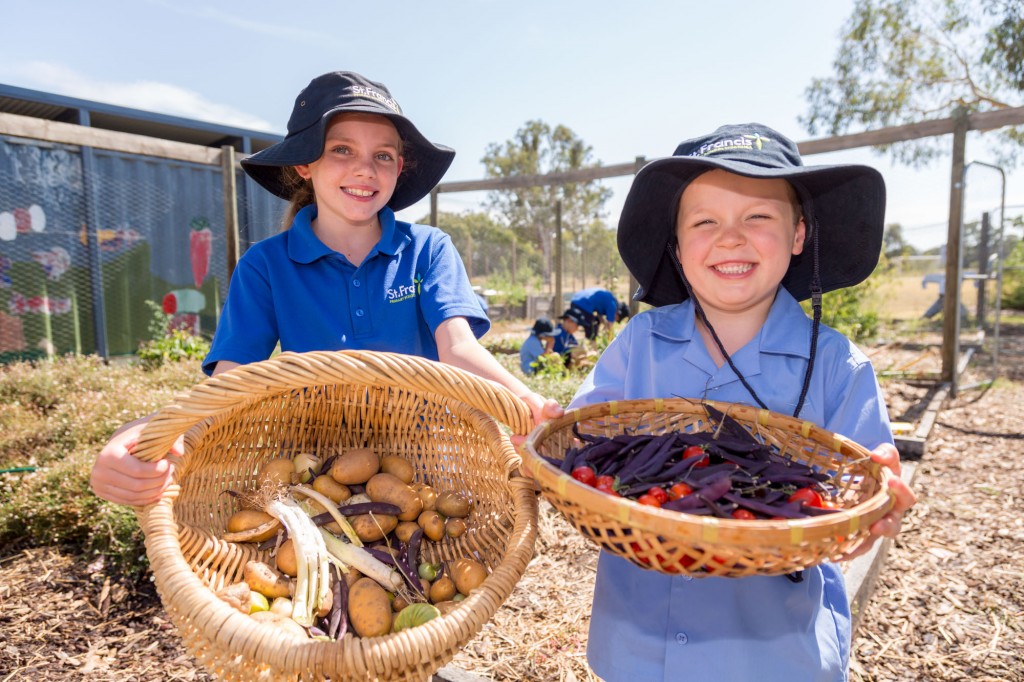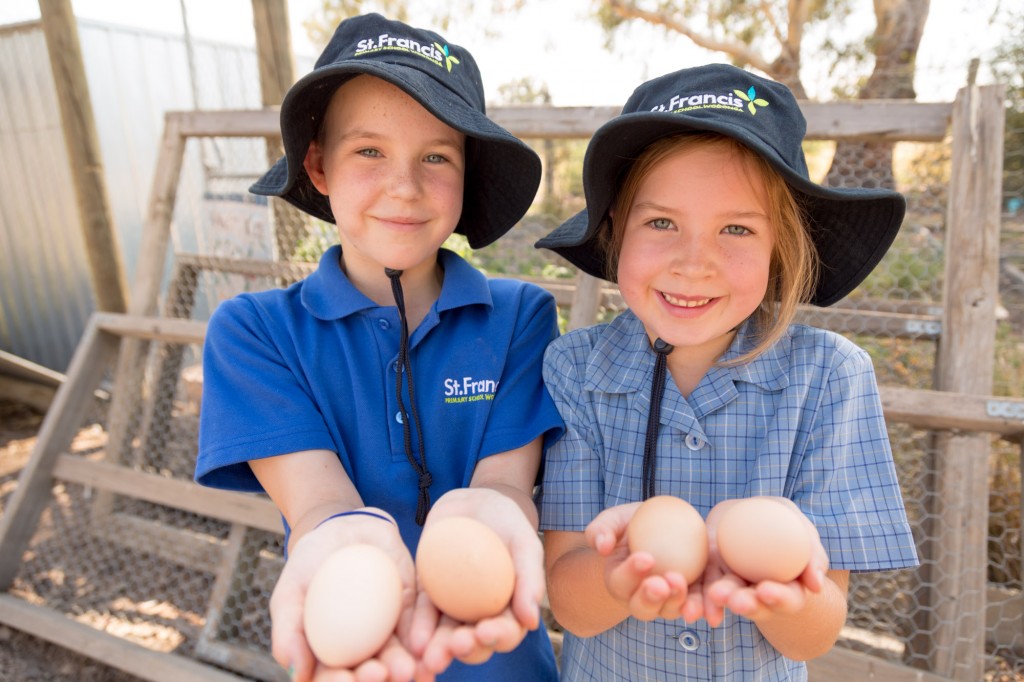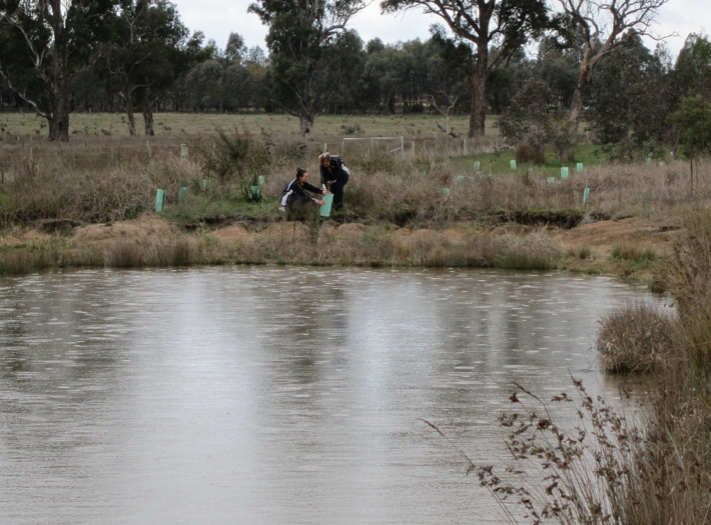In 2003, to compliment the design of the environmentally friendly buildings, consultations commenced with members of the local Baranduda Landcare group, to assist with the planning of the revegetation of the 12.5 hectare school site. The protection of remnant vegetation and the preservation of existing heritage trees were of prime consideration.
In 2004, the inaugural St Francis of Assisi Primary School Tree Planting Day was held with students from local schools, community members and students from the Riverina TAFE National Environmental Centre. This has become an annual event at St Francis of Assisi Primary School since 2004 with over 5000 indigenous and native trees, shrubs and grasses planted over this time.
This has been done through the introduction of weekly Education for Sustainability (EfS) lessons for all students, where energy and its management is taught as an integral component of the program. As a result of these programs and with the assistance of the Student Sustainability Group organising whole school participation in ‘Earth hour’ and ‘Sandhurst Switches Off’ reducing the amount of energy we use has become part of everyday school life.
As the school continues to grow, future plans ensure that energy efficient buildings will be built containing many energy reducing features and the installation of more solar panels to offset electricity use.
Waste management at St Francis of Assisi Primary School is focused on putting systems in place that educate everyone about being more proactive in reducing, reusing and recycling rubbish and litter in the school and home environment.
The introduction of a school ‘Nude Food’ competition, followed two years later by the ‘No Wrappers’ program, the removal of bins from the yard, the development of designated eating areas and coupled with the successful implementation of College expectations on the recycle and landfill bin system, have ensured sustainable waste management is a priority at St Francis of Assisi Primary School.
The introduction of the ‘Green Procurement’ policy was an integral part of waste management process as it assists staff members with guidelines for purchasing environmentally friendly products and resources. Education of community members through regular information in school newsletters and at assemblies, have helped educate the wider community in waste management in their homes.
Through the drought years of 2006 to 2010, St Francis of Assisi Primary School students and staff developed a deeper understanding of the value of water at our school and local region. During this time, a total of 9 water tanks were installed to further enhance the school’s ability to collect and store this most valuable resource. The water collected is used to water the vegetable garden and orchard, as well as to flush all toilets.
The Parent Sustainability Group, with the support of the School Leadership team, reviewed the use of water in the school and made the decision to remove all drip systems from gardens and refrain from watering the school grounds. With this decision, came the policy to only plant indigenous and native drought tolerant plants that will be able to survive the harsh conditions that occur in Baranduda. The exceptions being fruit trees, herbs, vegetables and flowering plants that assist with encouraging bees into the vegie garden.
In 2010, students in Years 5 and 6 began to develop the school Wetlands. With assistance from members of Baranduda Landcare, erosion prevention systems were put in place, along with the planting indigenous and native plants. The health of the wetlands is assessed by students during their studies of micro and macro-invertebrates.




